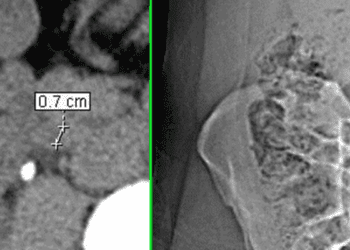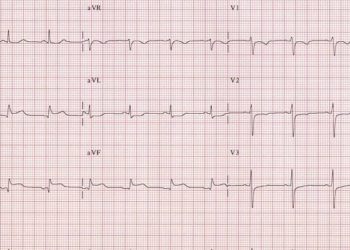Increased salt intake may be associated with greater chronic kidney disease risk
1. This large cohort study found that in the general population, a higher self-reported frequency of adding salt to foods was significantly associated with increased chronic kidney disease (CKD) risk.
Evidence Rating Level: 2 (Good)
Sodium intake is essential for various physiological functions, but high consumption has been associated with hypertension and CKD. Self-reported frequency of adding salt to foods is associated with an increased risk of cardiovascular diseases, premature mortality, and type 2 diabetes, but there are no studies investigating its relation with CKD. This large cohort study analyzed data from 465 288 adults (mean [SD] age 56.32 [8.08] years; 54.83% female; median [IQR] follow-up, 11.8 [1.4] years) from the UK Biobank (UKB) study to determine the association of self-reported frequency of adding salt to foods with incident CKD. There were 22,031 incident events of CKD during the study period. Individuals who reported a higher frequency of adding salt to their foods had a higher BMI, higher Townsend Deprivation Index (a composite measure of deprivation based on unemployment, noncar ownership, nonhome ownership, and household overcrowding)m and a decreased baseline eGFR. Even after adjusting for potential cofounders, compared with those who reported never or rarely adding salt to food, those who reported sometimes adding salt to food (aHR, 1.04; 95 % CI, 1.00-1.07), those who reported usually adding salt to food (aHR, 1.07; 95% CI, 1.02-1.11), and those who reported always adding salt to food (aHR, 1.11; 95% CI, 1.05-1.18) demonstrated a significantly higher risk of CKD (P < .001). Overall, these findings indicate that a higher self-reported frequency of adding salt to food is significantly associated with an increased risk of CKD, warranting the consideration of reducing the addition of salt to foods as a viable strategy for the prevention of CKD.
Click to read the study in JAMA Network Open
Image: PD
©2024 2 Minute Medicine, Inc. All rights reserved. No works may be reproduced without expressed written consent from 2 Minute Medicine, Inc. Inquire about licensing here. No article should be construed as medical advice and is not intended as such by the authors or by 2 Minute Medicine, Inc.








